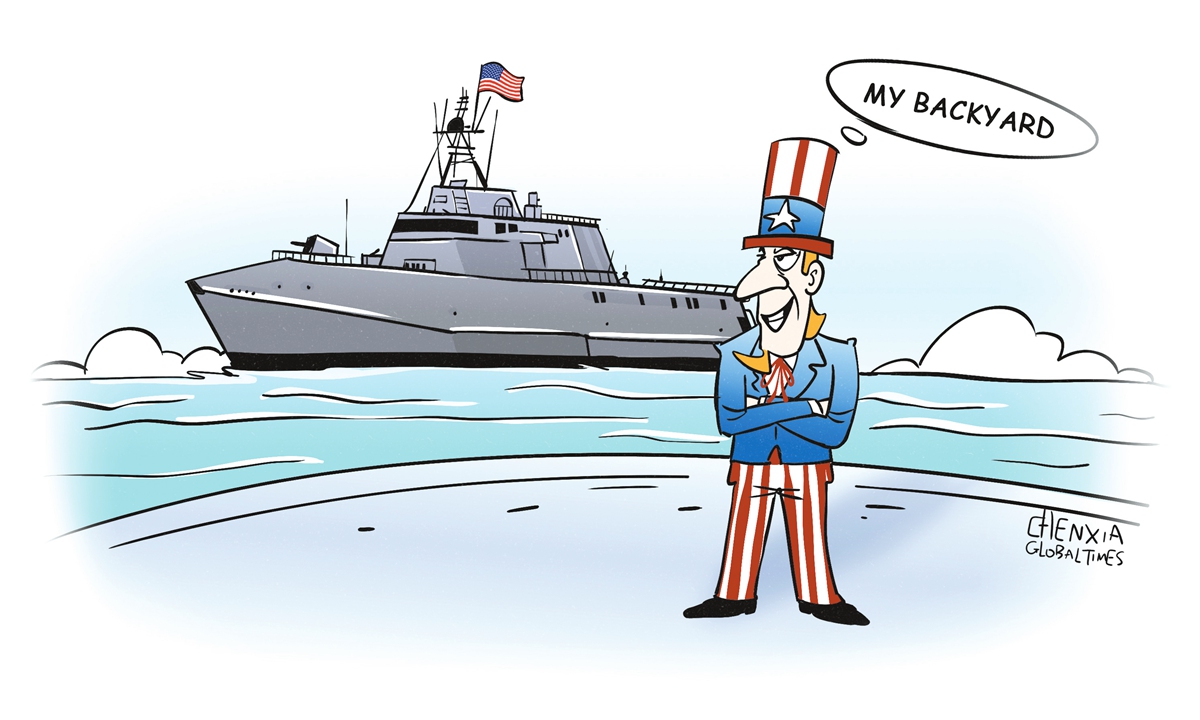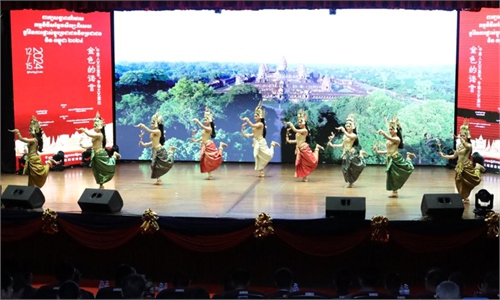
Illustration: Chen Xia/GT
Recently, Samdech Techo Hun Sen, the Cambodian Senate President and former prime minister, announced plans to grant Japanese vessels visitation rights at Ream Naval Base. Through practical actions and clear statements, Cambodia has debunked rumors propagated by the US and some Western countries about "China's military presence in Cambodia."As early as 2019, US media claimed that Cambodia had signed a "secret agreement" with China allowing the latter to use Ream as a military base. Then-Prime Minister Hun Sen denounced this as "fake news," but the US continued to pursue the narrative. In 2023, following sightings of Chinese warships docked at Ream Naval Base, the US sparked another wave of rumors. Later on, even as American warships successfully docked in Cambodian ports, the US continued to harbor suspicions. Regarding the baseless speculations and deliberate hype from the US, Cambodia finds itself in a challenging position to respond. Notably, Cambodia's allowing Japanese Self-Defense Force vessels to access the Ream Naval Base, considering the close ties between Japan and the US, especially their cooperation in military intelligence, means that the US is likely to learn about the true situation at Ream from Japan. This reflects Cambodia's careful consideration. It is hoped that the US can move past its unfounded obsessions, stop sensationalizing the Ream Naval Base, and stop thinking that Cambodia is China's "backyard."
Over the years, China's defense and security cooperation with ASEAN countries has been based on mutual respect, equality, and mutual benefit. China neither forces ASEAN countries to engage in such cooperation nor conducts these activities in secrecy, nor do they target any third party. Moreover, ASEAN countries have not expressed concerns or grievances over their defense and security cooperation with China. Many ASEAN scholars have told the author that for a small country seeking to strengthen its defense capabilities, cooperating with China on defense infrastructure projects is entirely normal. Despite Cambodia's transparent explanations and goodwill gestures, such as invitations to visit, the US has stubbornly maintained its accusatory stance, acting as if it has the authority to hold others accountable from a self-assumed position of superiority. Unsurprisingly, some ASEAN countries are increasingly dissatisfied with the US' habit of meddling and stoking regional tensions. This growing discontent is turning into a liability for the US in Southeast Asia, as it loses the trust of the region's people. Clearly, the Ream Naval Base is merely a pretext for the US to disrupt regional security and strengthen its own military presence in the region. If the US continues to interfere in China's legitimate cooperation with other countries and stir up trouble, it will only backfire, leading to growing resentment from other nations.
The author is a researcher at the Regional and Country Studies Center of South China University of Technology and a doctoral advisor. opinion@globaltimes.com.cn

